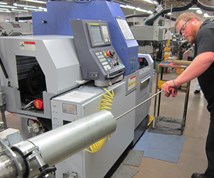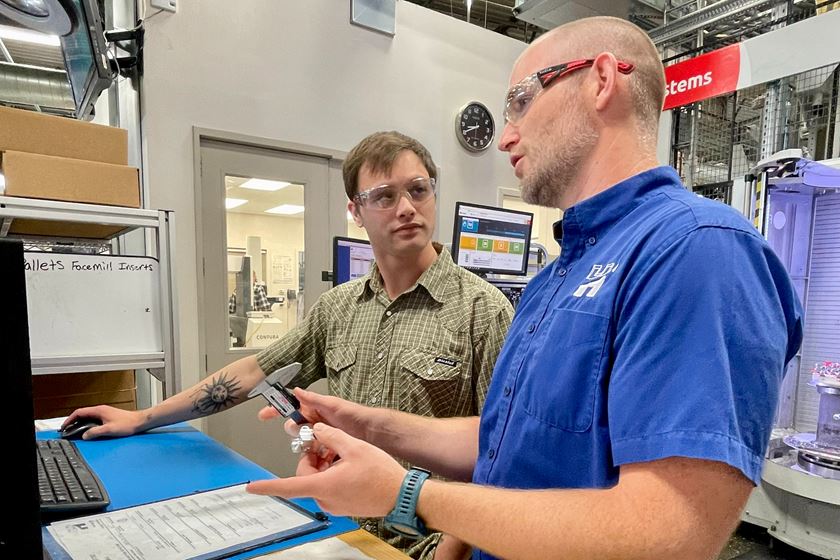管理层的角色变化
PM recently visited E. J. Basler Co., a precision machined parts producer in Schiller Park, Illinois, to congratulate company president Dennis Basler on his election as the current president of Precision Machined Parts Association (PMPA). A tour of his busy shop gave us an opportunity to meet a number of enthusiastic employees whose attitudes conveyed genuine pride in their work and their company. We asked Mr. Basler what was behind the pervasive upbeat attitude evinced by the shop's personnel. His answers offer some useful insights on the changing role of management in metalworking companies.
PM: How has E. J. Basler Co. been able to instill such enthusiasm in its employees?
Mr. Basler: We've given them a role in the management of the company. In the past, for us and most other companies, all initiatives originated at the top and flowed through mid-level managers to the hourly people. The culture and the established communication paths were not set up for open, two-way discussions. This created information gaps: If management didn't ask the right questions, it didn't get the right answers.
Featured Content
One of the problems with that management style was that it excluded a lot of knowledgeable people from the decision-making process. People who had the answer were never asked the question; and people who had the right question never had the opportunity to ask it because they weren't included in the discussion.
The old style of top-down management that put the responsibility for getting parts out the door on the shoulders of a few managers and one or two personnel was too limiting. We put all our reliance on the capabilities of a handful of people.
PM: What specifically are you doing to change things?
Mr. Basler: We are changing the role of management, and the change is being driven by what we want the culture of the company to be. Where before we expected our people to follow orders without question, we are now creating teams throughout the company and providing them with the decision-making authority to get the job done the best possible way.
PM: For example?
Mr. Basler: For instance, our associates (the term employee doesn't reflect the contributions they make) on the shop floor know what parts they need to run a job. They know what tools, training, machines, measuring instruments are necessary to produce those parts. If management empowers its associates on the plant floor with the same information management has, the associates not only make the same decisions management would make, but frequently make better decisions because they are more involved in the production process and are more aware of problems on a case-by-case basis.
PM: How do you motivate that degree of involvement in your associates?
Mr. Basler: The key is to instill a sense of ownership in the process, to convince each associate that going that extra mile to meet and go beyond customers' expectations is the best way to ensure the company's success and his or her own personal success. From a personal standpoint, ownership allows our people to take pride in themselves and in the work they do.
Ownership includes basic considerations such as keeping your work area clean and being concerned about the amount of scrap being generated. It also means constantly looking for ways to improve things. An associate with ownership will not let a bad part get out of his area. We believe that developing a culture of ownership is the right way to manage a business, and it has brought about a big change at the company.
PM: How has the culture of ownership affected the company's managers?
Mr. Basler: It has allowed management to manage instead of being involved every minute in every detail of the operation. We, as managers, should be spending our time removing the barriers that keep our associates and the teams on the floor from accomplishing the goals we set as an organization. We should be driving the business toward our vision and goals by using the power of teams instead of the power of our positions as managers.
PM: What improvements have resulted from your efforts to date?
Mr. Basler: As a result of the changes implemented over this past year, sales are up 50 percent with only a 14 percent increase in personnel. Our turnover is less than 1 percent, and morale on the plant floor is great considering how busy we are. A very encouraging development is that a number of people have demonstrated leadership qualities by assuming team leader roles.
We're quoting jobs faster. Our deliveries are better. Our quality is better. We have rewritten procedures and redesigned processes. We still have a lot of work to do, but we have focused on laying a strong foundation on which to build the future, and we feel pretty good about it.














